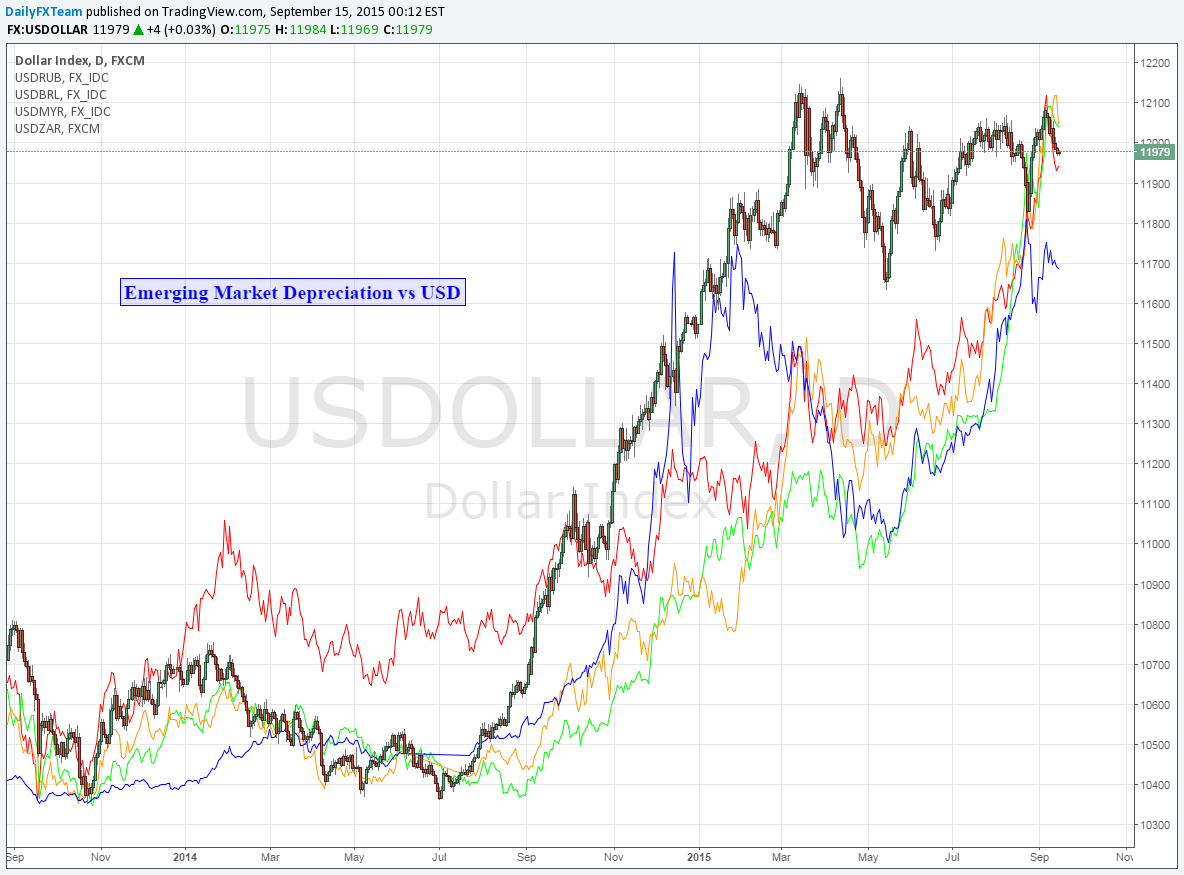Talking Points:
- According to the BIS, China growth concerns hinder commodity exporting markets
- US Dollar appreciation adds to difficulty of paying off dollar-denominated debt
- The average short-term interest rate correlation between EMEs and the US is 63%
Open a free FOREX demo account and trade the Chinese Renminbi among other currencies here
On September 13th, the Bank For International Settlements (BIS) released its quarterly review featuring the Emerging Market Economies (EMEs) in top headlines. In particular, the BIS noted that concerns surrounding Chinese growth and the US Dollar’s appreciation combined to pose a “double challenge” for commodity producing countries.
According to the article, some of the fading investor confidence in China was a result of recent stock declines, yuan devaluation, and contracting PMI’s. Being one of the largest commodity importers in the world, a slowdown in China’s economy could result in decreased demand for commodities supplied by emerging markets. These concerns follow declines in oil prices which lead commodity-exporting countries (New Zealand, Australia, India, Thailand) to ease monetary policy.
At the same time, a rising US Dollar is adding to the difficulty of repaying dollar-denominated debt in foreign countries. According to the Bank For International Settlements, “At (the) end-March 2015, financing of non-bank borrowers in US dollars outside the United States totaled $9.6 trillion.” After the 2008 Great Financial Crisis, many emerging market-based corporations increased their income-based leverage to 10-year highs. The BIS said that current financial conditions (low PMI’s from China, Brazil, Russia) saw sharply rising credit spreads.
Looking ahead, BIS calculations found that the average short-term interest rate correlation between EMEs and the US is 63 percent. The BIS included the Fed’s tightening cycle of 2004-06 as part in its sample period. One of the main causes of the similarity is likely monetary policy spillover. A large interest rate differential can lead to financial stability risk and a loss in trade competitiveness. If the correlation holds true, there could be a chance that emerging markets will respond as the Fed is expected to hike over the next 2 years.

